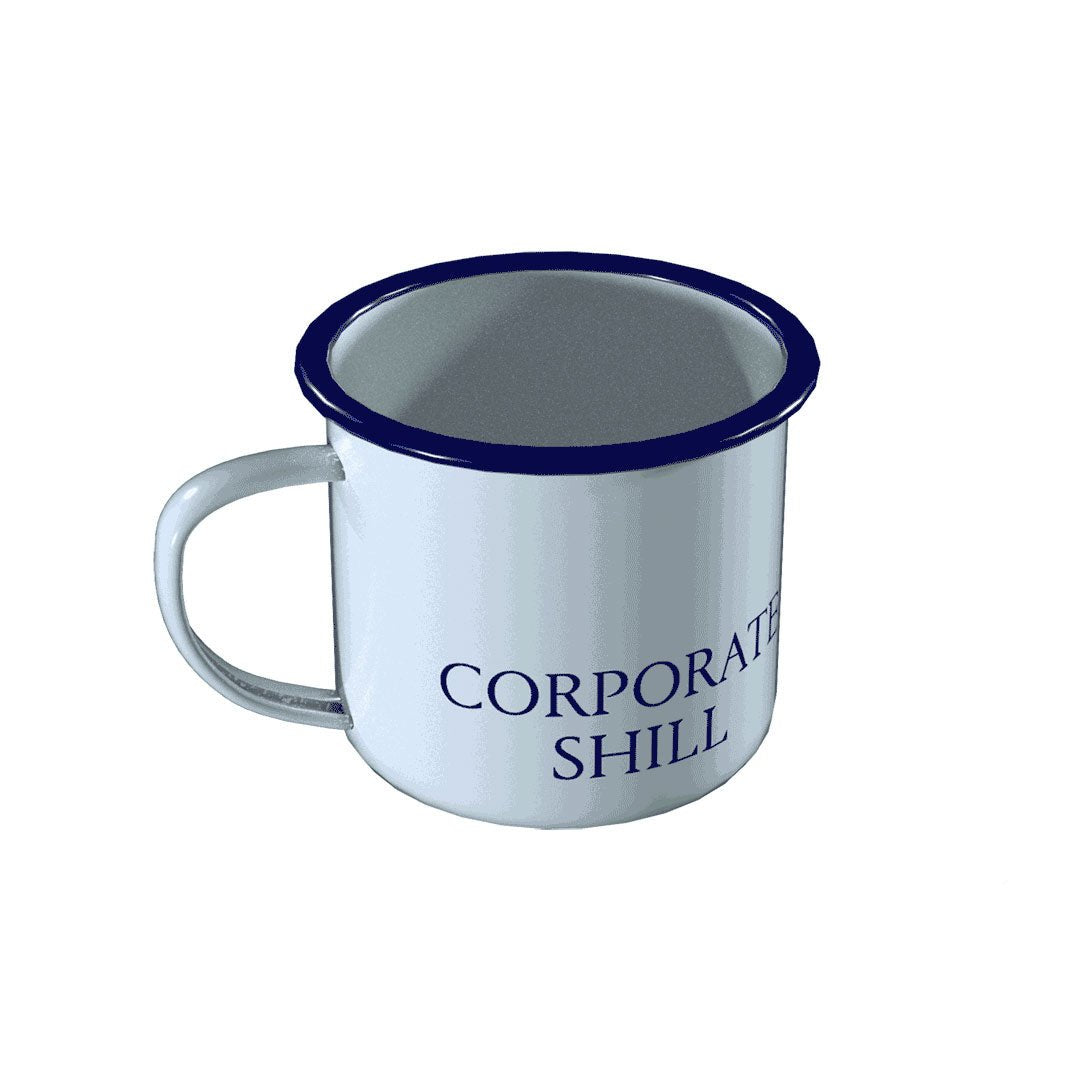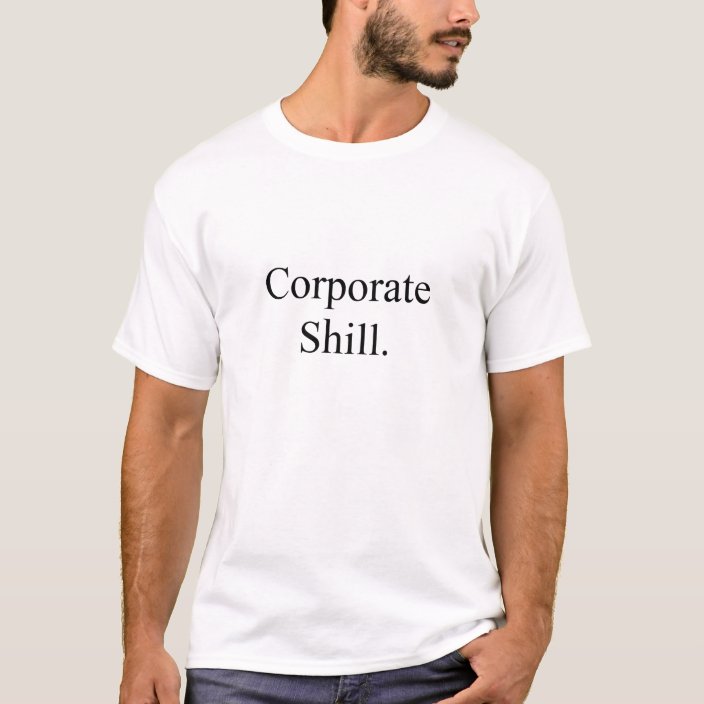Ever wondered why some products seem to pop up everywhere? Corporate shills might be behind it. In today’s world, marketing has evolved into a sophisticated game, and corporate shills play a major role in shaping consumer behavior. These hidden persuaders work in the shadows, influencing opinions and driving sales without you even realizing it. It's like a secret society of marketers operating under the radar, and they're more powerful than you think.
Corporate shills are the unsung foot soldiers of big corporations. They’re the ones spreading positive reviews, suppressing negative feedback, and subtly steering public perception. You might not see them, but they're everywhere—on social media, forums, blogs, and even in mainstream media. The impact of their actions is massive, yet most people are completely unaware of their existence.
So, why should you care about corporate shills? Because they affect your purchasing decisions, often without you knowing it. Understanding how they operate can help you make smarter, more informed choices. This article will dive deep into the world of corporate shills, uncovering their tactics, motivations, and the industries where they thrive. By the end, you'll be armed with the knowledge to spot them and protect yourself from their influence.
This article covers everything you need to know about corporate shills, including their role in marketing, the industries they dominate, and how to identify them. We’ll also explore real-life examples, expert insights, and actionable tips to help you navigate this complex landscape. So, grab a coffee, sit back, and let’s unravel the mystery of corporate shills together.
Table of Contents
- What Are Corporate Shills?
- The Role of Corporate Shills in Marketing
- Industries Where Shills Thrive
- Tactics Used by Corporate Shills
- Why Companies Hire Shills
- How to Spot a Corporate Shill
- Real-Life Examples of Corporate Shills
- Legal Implications of Corporate Shilling
- Ethical Considerations in Shilling
- Conclusion: Protect Yourself From Corporate Shills
What Are Corporate Shills?
Alright, let’s break it down. A corporate shill is basically someone who promotes a product, service, or company on behalf of a corporation, often without disclosing their affiliation. Think of them as undercover agents working for big brands. They might pose as regular customers, leaving glowing reviews or defending the brand in online discussions. Sometimes, they even attack competitors to give their own product an edge. It's like a covert operation in the world of marketing, and it’s surprisingly common.
Now, you might be thinking, "Isn't this just regular advertising?" Not quite. What sets corporate shills apart is the lack of transparency. While traditional ads are upfront about their intentions, shills operate in stealth mode. They blend into online communities, forums, and social media platforms, making it hard to distinguish between genuine opinions and paid promotions. This blurring of lines is what makes corporate shilling so effective—and so controversial.
Why Shills Are So Effective
Shills tap into the psychology of trust. People are more likely to believe recommendations from peers than from official sources. That’s why shills often pose as everyday users, sharing "personal experiences" that resonate with others. It’s a clever trick that exploits our natural inclination to trust social proof. For instance, a shill might post a glowing review of a skincare product on a beauty forum, influencing others to try it without realizing the review is biased.
And let’s not forget the power of negativity. Shills don’t just promote their own products—they also discredit competitors. By spreading false information or exaggerating flaws, they can sway public opinion in favor of their employer. It’s a dirty tactic, but it works. So, next time you come across a scathing review of a product, ask yourself: Is this real, or is it a shill at work?
The Role of Corporate Shills in Marketing
Corporate shills play a crucial role in modern marketing strategies. They’re not just random individuals hired to post online; they’re part of a larger campaign designed to influence public perception. Companies invest heavily in these campaigns because they deliver results. A well-executed shilling operation can boost sales, improve brand reputation, and even silence critics. But how exactly do they fit into the marketing puzzle?
For starters, shills help create a buzz around new products. By generating positive chatter on social media and review sites, they can make a product seem more popular than it actually is. This creates a snowball effect, where more people start talking about it, leading to increased visibility and sales. It’s like planting seeds in the right places and watching them grow into a full-blown trend.
Shills as Brand Ambassadors
In some cases, shills go beyond just posting online. They become active participants in brand communities, engaging with real customers and shaping conversations. This level of involvement makes their influence even more potent. For example, a shill might join a Facebook group for tech enthusiasts and subtly steer discussions toward their employer’s latest gadget. By doing so, they create a sense of community around the brand, making it seem more relatable and trustworthy.
But here’s the kicker: shills aren’t just limited to online spaces. They also operate in the real world, attending events, giving interviews, and even infiltrating competitor spaces. It’s a multi-faceted approach that covers all bases, ensuring the brand’s message reaches as many people as possible. And with the rise of social media influencers, the line between shills and legitimate promoters is getting blurrier by the day.
Industries Where Shills Thrive
Not all industries are equally susceptible to corporate shilling. Some sectors, due to their high competition and public scrutiny, are more prone to this practice. Let’s take a look at a few industries where shills are most active.
Technology and Gadgets
The tech industry is a breeding ground for corporate shills. With so many new products launching every year, companies are desperate to stand out. Shills play a crucial role in this competitive landscape, promoting their employer’s gadgets while bashing competitors. From smartphones to smartwatches, you’ll find shills lurking in every tech-related forum and review site.
Beauty and Skincare
Beauty brands are no strangers to corporate shilling. With so much emphasis on appearance, companies are willing to go to great lengths to protect their reputation. Shills in this industry often pose as beauty bloggers or skincare enthusiasts, sharing "authentic" experiences that highlight the benefits of their products. It’s a delicate balance between promotion and authenticity, and shills are masters at walking that line.
Food and Beverage
Even the food industry isn’t immune to corporate shilling. With the rise of health-conscious consumers, companies are using shills to promote the benefits of their products while downplaying potential drawbacks. Whether it’s a new superfood or a trendy drink, shills are there to ensure the brand gets the attention it deserves.
Tactics Used by Corporate Shills
Corporate shills employ a variety of tactics to achieve their goals. These strategies are carefully crafted to maximize impact while minimizing the risk of detection. Let’s dive into some of the most common tactics used by shills.
Positive Reviews and Testimonials
One of the most effective tactics is posting positive reviews and testimonials. Shills often create multiple accounts to spread their message across different platforms. By doing so, they create the illusion of widespread approval, making the product seem more desirable. For instance, a shill might leave glowing reviews on Amazon, Yelp, and Google, creating a web of positive feedback that’s hard to ignore.
Negative Reviews for Competitors
Another popular tactic is posting negative reviews for competitors. This can range from pointing out minor flaws to outright exaggerations. The goal is to make the competitor’s product seem inferior, thereby driving customers toward their own brand. It’s a dirty trick, but it’s surprisingly effective. After all, who wants to buy a product with a long list of negative reviews?
Engagement and Interaction
Shills don’t just post and disappear—they engage with the community. By responding to comments, asking questions, and participating in discussions, they build credibility and trust. This level of interaction makes it harder for others to spot them, as they blend seamlessly into the conversation. It’s a clever tactic that exploits the power of social proof, making their opinions seem more legitimate.
Why Companies Hire Shills
So, why do companies resort to corporate shilling? The answer lies in the fierce competition and the pressure to succeed. In today’s crowded marketplace, standing out is harder than ever. Companies need every advantage they can get, and shills offer a way to level the playing field. But there’s more to it than just boosting sales.
Shills provide a level of control that traditional marketing can’t match. By infiltrating online communities and influencing conversations, companies can shape public perception in ways that ads alone can’t achieve. It’s a powerful tool that allows them to steer the narrative in their favor, protecting their brand from criticism and negativity.
The Cost-Benefit Analysis
For many companies, the benefits of hiring shills outweigh the risks. While the practice is ethically questionable, it’s often seen as a necessary evil in the cutthroat world of business. The potential return on investment is substantial, making it an attractive option for those willing to push the boundaries. Of course, there are risks involved, but as long as the operation remains undetected, the rewards can be significant.
How to Spot a Corporate Shill
Now that you know what corporate shills are and how they operate, it’s time to learn how to spot them. Identifying a shill isn’t always easy, but there are some telltale signs to look out for.
- Multiple accounts with similar usernames or avatars.
- Overly positive or negative reviews that seem out of place.
- Repetitive language or phrases used across different platforms.
- A sudden surge in activity around a specific product or brand.
- Defensive behavior when questioned about their affiliation.
By paying attention to these signs, you can better protect yourself from the influence of corporate shills. Remember, knowledge is power. The more you know about their tactics, the better equipped you are to spot them in action.
Real-Life Examples of Corporate Shills
Corporate shilling isn’t just a theoretical concept—it’s happening all around us. Let’s take a look at some real-life examples that highlight the impact of shills in the marketplace.
The Smartphone Wars
Remember the great smartphone debate? A few years ago, a major tech company was accused of hiring shills to promote their latest model while bashing competitors. The operation was so well-executed that it almost went unnoticed. It wasn’t until a whistleblower came forward that the truth came to light, exposing the extent of the shilling campaign.
The Beauty Scandal
In the beauty industry, a well-known brand was caught using shills to inflate their product ratings on popular review sites. The shills created dozens of fake accounts, flooding the platforms with glowing reviews. When the scam was uncovered, it caused a major backlash, damaging the brand’s reputation and leading to stricter regulations on online reviews.
Legal Implications of Corporate Shilling
While corporate shilling might seem like a clever marketing strategy, it’s not without its legal risks. In many countries, laws exist to protect consumers from deceptive practices. Companies found guilty of shilling can face hefty fines, lawsuits, and damage to their reputation. It’s a serious issue that’s gaining more attention as awareness grows.
Regulatory bodies are cracking down on shilling practices, imposing stricter guidelines on disclosure and transparency. For instance, in the US, the FTC requires companies to clearly disclose any paid endorsements or affiliations. Failure to comply can result in severe penalties, making it a risky move for businesses.
Ethical Considerations in Shilling
Beyond the legal implications, there’s the ethical question of whether corporate shilling is right. Many argue that it undermines trust and honesty in the marketplace. By manipulating public opinion, companies


